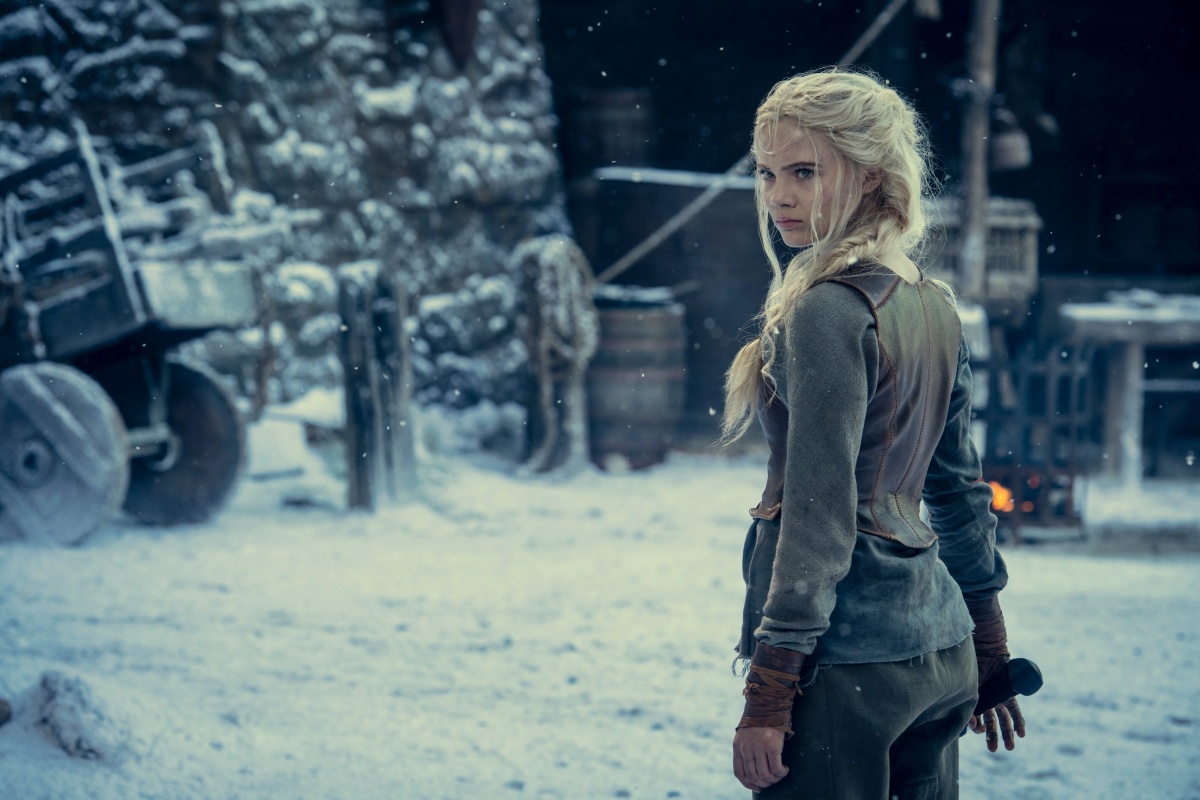How The Witcher’s Ciri Further Highlights the Tragedy of Daenerys Targaryen

The Witcher season two ended up being a strange comfort food this weekend. While my memories of the previous season were somewhat hazy it didn’t take me long to get reinvested in the story of Geralt, Ciri, and Yennifer (ft. Jaskier).
Ciri (Freya Allan) especially stood out this season as the mythology around her and her relationship to the elves was explored. As I watched her arc this season, it was impossible not to think of another pale royal with strange abilities—Game of Thrones’ Daenerys Targaryen.
SPOILERS FOR THE WITCHER S2
We find out in season two of The Witcher that Princess Cirilla Fiona Elen Riannon aka Ciri has Elder blood, despite her grandmother being notoriously bigoted against elves. The reason for that is that Ciri’s maternal line is descended from Lara Dorren, a powerful elven mage. Ciri possesses great power because of it and due to a curse, Ciri has the power to bring forth creatures from the monoliths.
I have some game/book knowledge about what that all means, but I don’t want to ruin that for anyone so we will just put a pin in that. During the big finale fight, Ciri brings forth basilisks. The image of her in white, her pale blonde hair, mystically colored eyes, and the reptile-like creatures beside her screamed Daenerys/Dany.
The Witcher novels and A Song of Ice and Fire are not that similar at all (and the fantasy genre is filled with white-haired princesses), but for nearly a decade Game of Thrones was fantasy television and Dany was one of the faces of that series.
Ciri on the show is supposed to be somewhere between 12-13 years old, and while Freya Allen is twenty years old, she is dressed in clothes that are loose and styled in a way that is meant to highlight her youth and innocence. This season, she’s likely 14 at the most, considering the time that passes in-show. The people around her treat her with a protective parental eye.
In contrast with Dany, who was also meant to be thirteen in the book series and aged up to sixteen in the television show, the GoT series always wants us to see Dany as a sexual being. Sexual assault is part of her storyline from the beginning and even men who seem to want to protect her, like Jorah, are romantically and sexually interested in her. There is no adult figure who actually wants to protect her without some sort of agenda.
While Ciri is training with the other Witchers they do push her physically as a warrior, but no one is being lecherous towards her. They tease her for being a princess, but when it comes down to it they want to protect her.
My surprise at that only highlights how normalized we are to series like this always having the threat of sexual violence be a part of the story and excused as “necessary.” Ciri has lost everyone she grew up knowing, has been betrayed, on the verge of death, and has powers she can only begin to understand—we don’t need sexual violence as an add-on to her story. Of course, The Witcher hasn’t completely ignored sexual violence, but this season there was no rape at all and that was honestly refreshing.
Another thing I thought was interesting was how Ciri’s powers connect to the elves. The Witcher has clearly set up the elves as a stand-in for Indigenous and other historically persecuted communities—a cliche trope at this point. Ciri is part elf, but that was hidden from her in order to protect her from those who would try and use her. It sets up Ciri in a place to be a liberator to one group and an oppressor to another, depending on which side she chooses.
One of the criticisms of Dany was that she was a white savior who was a descendent of invaders, using a mostly brown army to help to reclaim her throne. Game of Thrones never really knew how (or honestly wanted) to deal with that aspect of her character until the very end when they just decided to make her a mindless warlord over the course of two episodes.
Due to the world of The Witcher being much more diverse, we manage to avoid those undertones, and by having Ciri be a bridge between these two societies we get to have more conversations about who gets to lead a group into salvation.
I really enjoyed The Witcher season two, even though I missed the non-linear storytelling structure, and part of the reason is that despite being very silly fantasy with a solid budget for monsters, but no budget for wigs (save for my good sis Fringilla) is that it does justice to the women of the show. Even in storylines that would be cliche in other places, The Witcher has the chemistry to make it work.
Toss a view to The Witcher on Netflix.
(image: Netflix)
Want more stories like this? Become a subscriber and support the site!
—The Mary Sue has a strict comment policy that forbids, but is not limited to, personal insults toward anyone, hate speech, and trolling.—
Have a tip we should know? tips@themarysue.com